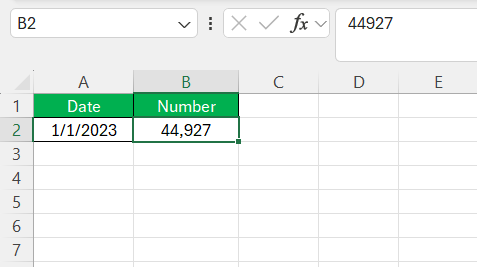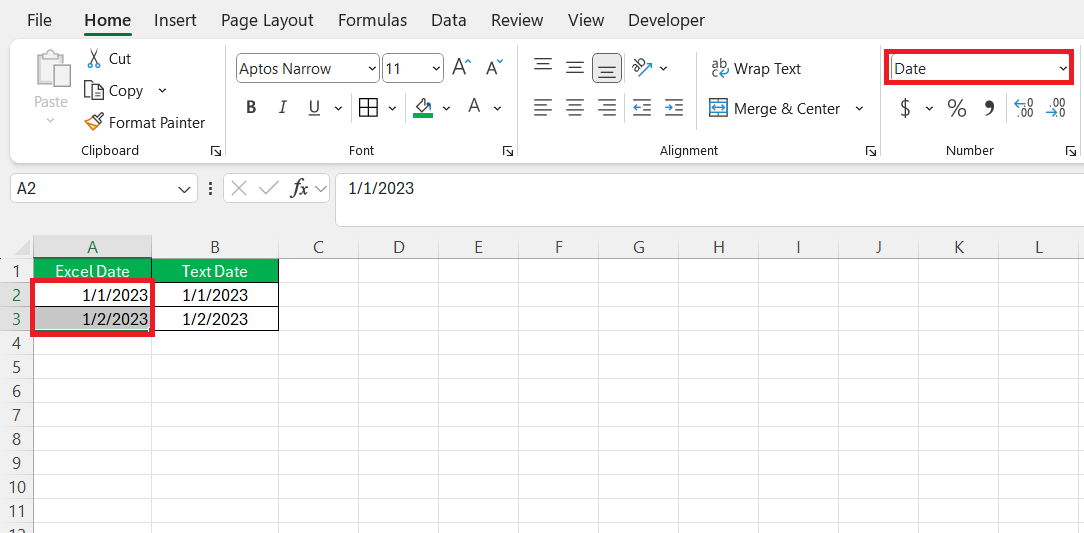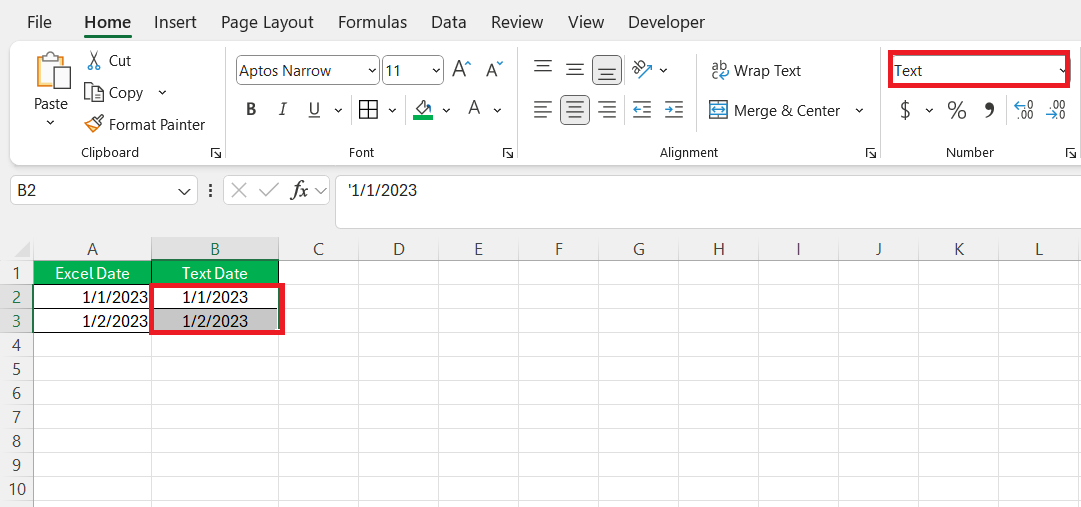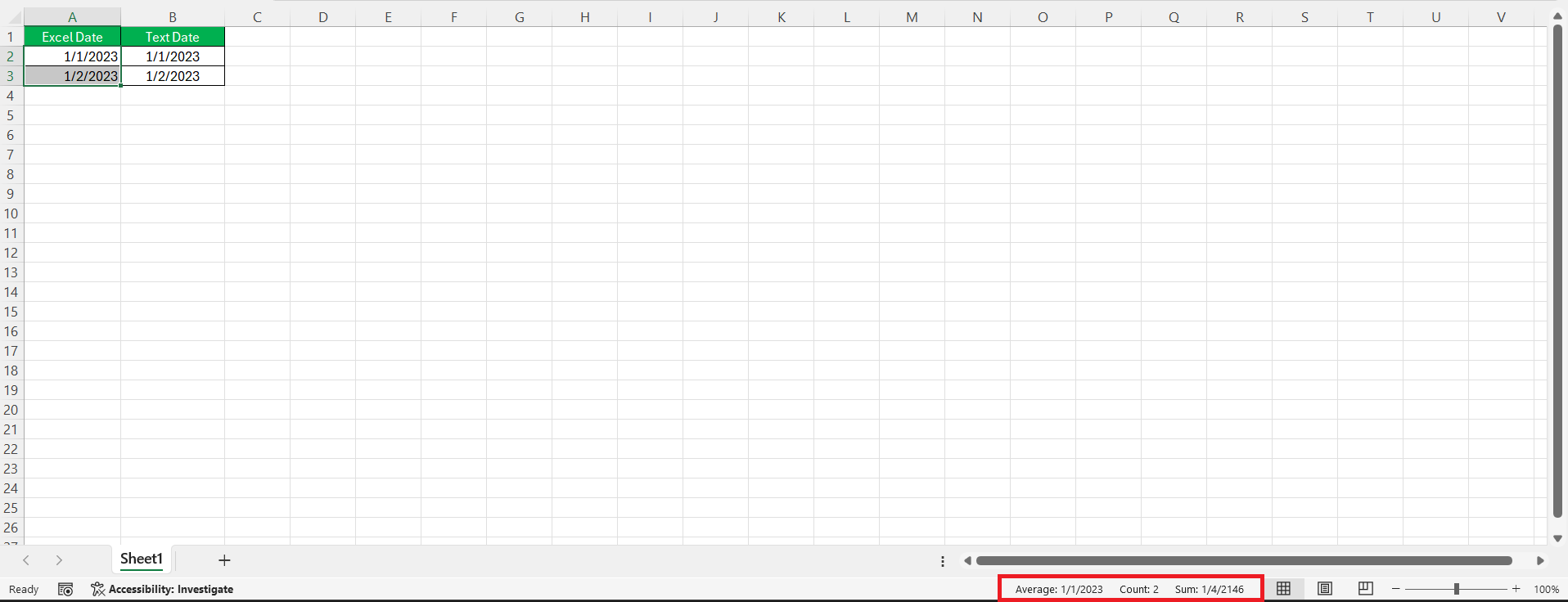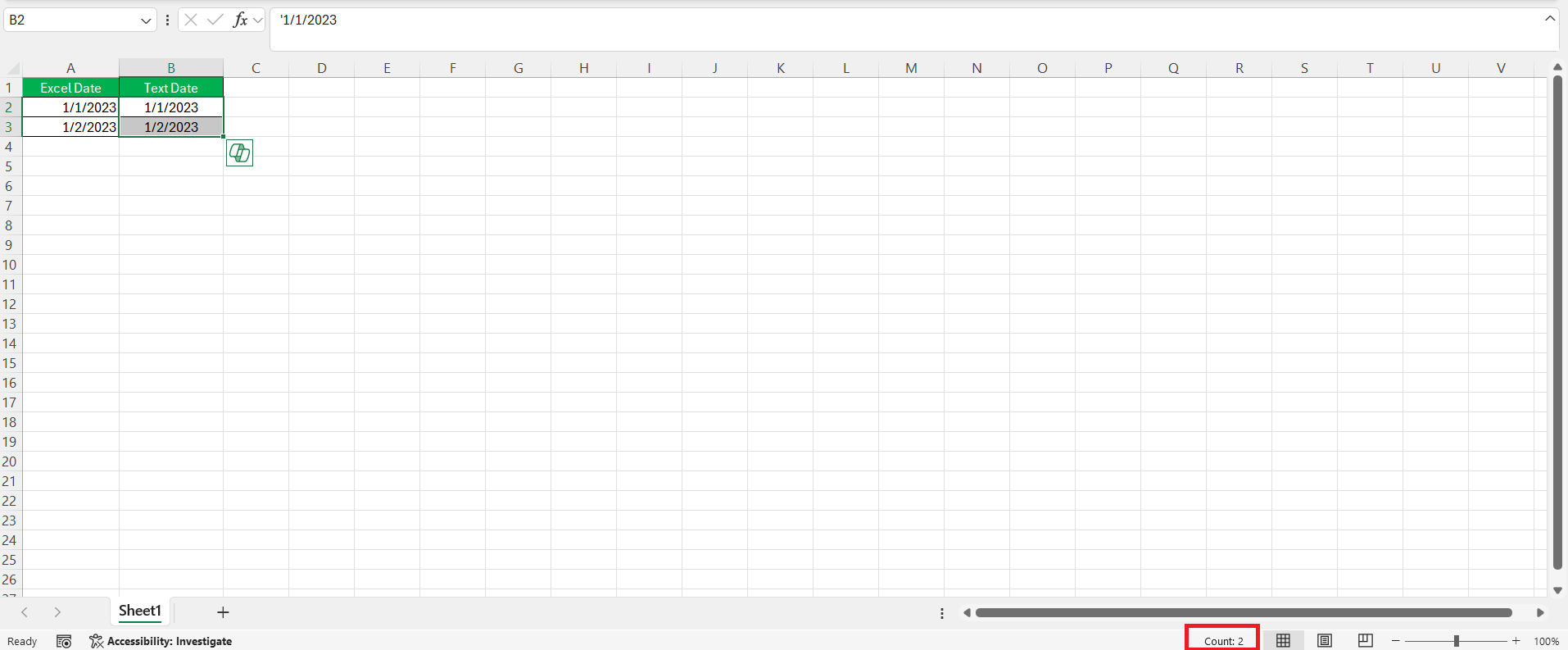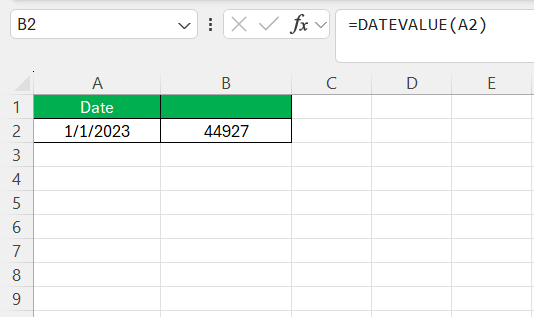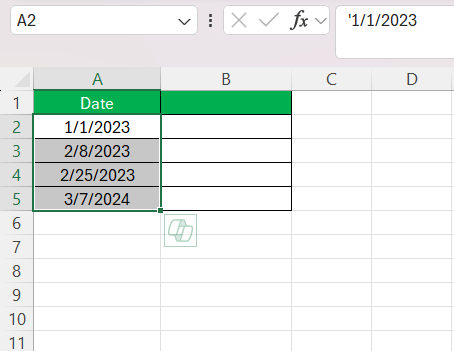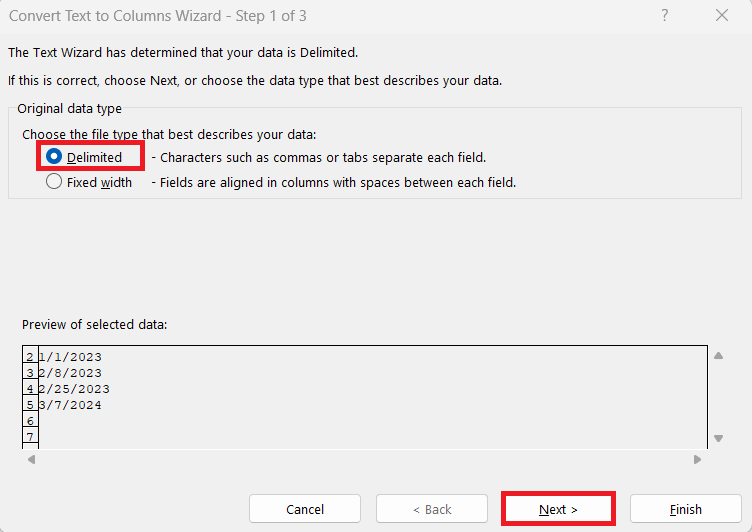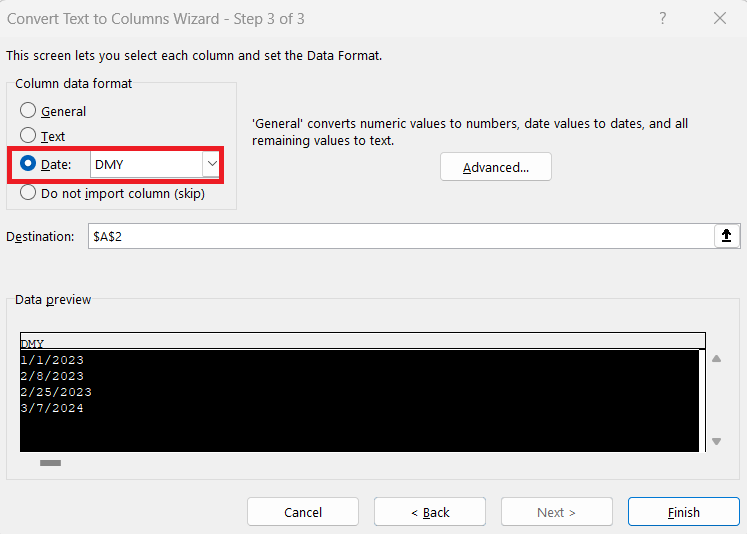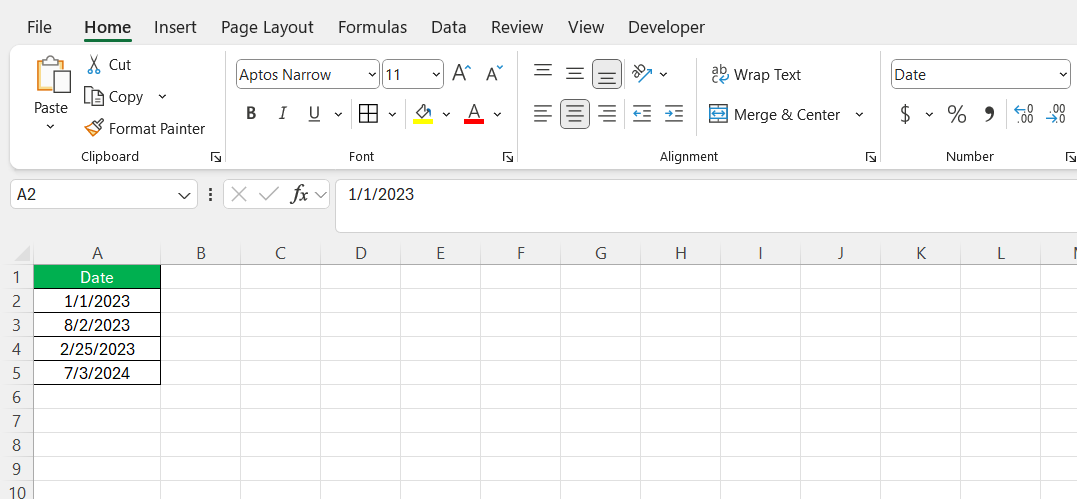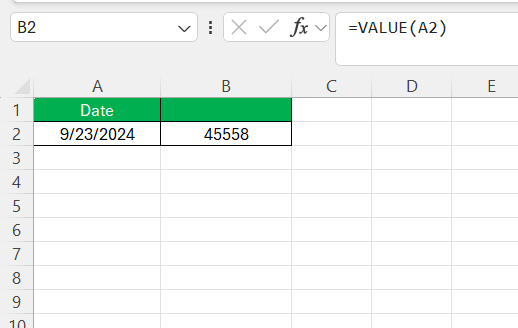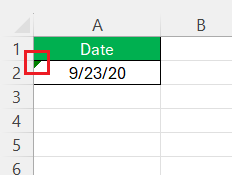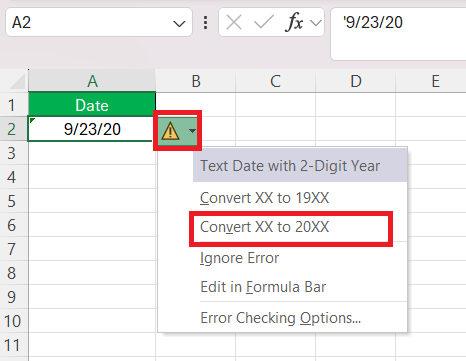One of the most common tasks I run into when working with Excel is converting text entries into actual dates. This happens when dates are either manually entered in non-standard formats or imported from external systems as text strings. Luckily, there are simple ways to convert these text entries into proper date formats, so I can work with them effectively for calculations, sorting, or filtering.
Key Takeaways:
- Correct date conversion is essential for accurate data analysis and readability in Excel.
- Excel uses a serial number system to store dates, enabling date calculations and operations.
- Text dates limit Excel’s ability to perform date functions, sorting, and filtering.
- Functions like DATEVALUE, VALUE, and Text to Columns help convert text into recognizable dates.
- Excel features such as Flash Fill and error-checking can simplify converting multiple text dates simultaneously.
Table of Contents
Introduction to Converting Text to Dates in Excel
Common Challenges of Date Formatting in Excel
Working with date formats in Excel can often be frustrating. I’ve seen firsthand the confusion when dates imported from other files, like .csv documents, lose their formatting once they hit the Excel grid. This loses the ability to perform basic functions like sorting by dates, which is fundamental in data organization.
The Importance of Correct Date Conversion
Correct date conversion in Excel is paramount for several reasons.
- Firstly, it ensures accuracy in data analysis, where sorting, filtering, and using date-specific functions rely heavily on Excel to recognize dates correctly.
- Secondly, it affects the visual representation of data. Correctly formatted dates improve readability and consistency throughout spreadsheets, making reports more professional and trustworthy.
- Moreover, Excel’s built-in date functions like DAY(), MONTH(), and YEAR() can only work with properly formatted dates, which is essential for dynamic data manipulation and calculations.
A misplaced or misinterpreted date has the potential to disrupt timelines, skew results, and undermine decision-making processes based on the spreadsheet data.
Understanding Excel’s Date System
Excel’s Serial Number Format Explained
Excel’s date system is unique; it counts dates as serial numbers where each day is a sequential number, starting from January 1, 1900, known as serial number 1. This is a core concept to grasp because Excel actually stores dates as these numbers, which is what allows for date arithmetic, like subtracting one date from another to find the number of days in between.
For example, the serial number for January 1, 2023, would be 44562.
This system is not just a quirk; it’s the backbone of all date-related operations in Excel. Understanding this helps us comprehend why Excel might see what looks like a date to us as just text or a string of characters.
Text Date vs. Excel Date Recognition
Distinguishing between text dates and Excel dates is crucial when working with data. Excel dates, recognized by the program as valid, are formatted with a “Date” type in the “Number Format” box and align to the right within a cell, indicating they are treated as numbers.
Contrastingly, text dates, which lack this recognition, display a “General” or “Text” format.
When several Excel dates are selected, the status bar provides the “Average,” “Count,” and “SUM” – functions.
Text dates might include extraneous characters like apostrophes and will not support date functions or allow you to sort a table by the date, thus limiting their utility in calculations and analysis. It will only display a count of values.
Methods to Convert Text to Date in Excel
Using the DATEVALUE Function
The DATEVALUE function is one of the easiest ways to convert text into dates. This function interprets a text string representing a date and converts it into a date value that Excel recognizes.
I just enter the formula =DATEVALUE(A1) (where A1 is the cell containing the text-formatted date), and Excel will return the correct date format.
Using Text to Columns
If I have a whole column of dates that are stored as text, I can use the Text to Columns feature:
STEP 1: First, I highlight the column of text entries.
STEP 2: Then I navigate to the Data tab and select Text to Columns.
STEP 3: I choose Delimited and click Next twice.
STEP 4: In the final step, I choose Date and select the appropriate format (e.g., DMY for day, month, year) from the drop-down menu.
This method is a lifesaver when dealing with large datasets!
Using the VALUE Function
Sometimes, I use the VALUE function to convert text into dates, especially if the text date is in a recognizable format, like “2024-09-23.” By using =VALUE(A2), Excel transforms the text into a numeric date value.
These methods ensure that I can quickly and easily transform text strings into dates for analysis or reporting.
Bonus Tips for Date Conversion
Quick Fixing Text Dates with Two-digit Years
A quick fix for text dates with two-digit years involves Excel’s error-checking feature. When I encounter a column with dates showing only two digits for the year, I can convert these to four-digit years almost effortlessly. Here’s how I do it:
First, I select all the affected cells. If Excel identifies these text dates as potential errors, a small green triangle appears in the corner of the cells.
Clicking on the yellow diamond-shaped error icon that appears lets me select the ‘Convert to Date’ option. With a simple click, all the two-digit years change to four-digit years, assuming they all belong to the same century.
It’s important to note this method assumes all the dates are from either the 1900s or 2000s. It’s a powerful feature designed to save time but should be used with caution, particularly when dealing with data that spans multiple centuries.
Converting Multiple Text Dates Simultaneously
For converting multiple text dates simultaneously, using Excel’s Flash Fill feature is a game-changer. This feature leverages Excel’s pattern recognition capabilities to convert and fill down an entire column based on a single example.
To activate it, I start by manually converting one text date into my desired date format in a cell adjacent to the original data.
Go to the Home tab > Fill > Flash Fill. After typing the initial converted date to trigger Flash Fill, and Excel will attempt to fill the column following the pattern I’ve set.
This works wonders for large datasets, where manual conversion would be prohibitively time-consuming.
FAQs on Converting Text to Date in Excel
How to convert text to Data in Excel?
To convert text to date in Excel, select the cells with text dates. Navigate to the ‘Data’ tab, click on ‘Text to Columns,’ choose ‘Delimited,’ and proceed. Then, under ‘Column Data Format,’ select ‘Date,’ choose the appropriate format, and finish the wizard. Your text will be converted to date format.
Can you convert a text string with custom delimiters into a date?
Yes, you can convert a text string with custom delimiters into a date in Excel. Use the ‘Text to Columns’ feature, select ‘Delimited,’ specify your custom delimiter, and then format the column as a date in the final step of the wizard.
How do you convert a serial number into an Excel date?
To convert a serial number into an Excel date, just change the cell’s formatting. Select the cell, right-click, choose ‘Format Cells,’ pick ‘Date’ from the ‘Number’ tab, and select your desired date format. Excel will display the serial number as a date.
What are the limitations when converting eight-digit numbers to dates?
When converting eight-digit numbers to dates in Excel, a limitation is that it can’t directly recognize them as dates due to the lack of delimiters. Custom formulas combining LEFT, MID, and RIGHT with the DATE function or ‘Text to Columns’ wizard are needed to structure them into a recognizable date format.
Is it possible to convert multiple text date formats at once?
Yes, it’s possible to convert multiple text date formats at once in Excel by using the ‘Text to Columns’ tool or Power Query, which can handle different formats simultaneously if they are consistently applied across data sets. Flash Fill is also useful for pattern recognition across varying formats.
John Michaloudis is a former accountant and finance analyst at General Electric, a Microsoft MVP since 2020, an Amazon #1 bestselling author of 4 Microsoft Excel books and teacher of Microsoft Excel & Office over at his flagship MyExcelOnline Academy Online Course.

